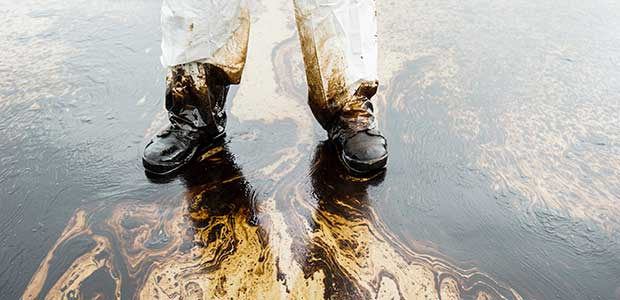
How Did the Oil Industry Change Post Deepwater Horizon
The oil industry is continuing to make a positive impact, ensuring events like the Deepwater Horizon oil spill never happen again.
- By Henry Berry
- Nov 09, 2020
On April 20th, 2010, the world watched in horror as one of history’s worst environmental disasters took place. A deadly blowout on the Gulf of Mexico’s Macondo Prospect resulted in the largest oil spill to ever happen. Tragically, the lives of 11 rig workers were lost, with another 17 critically injured. We watched helplessly as thousands of barrels of oil drained into the ocean, whilst a permanent solution was manufactured from scratch.
Despite specialists' best efforts, it took a full 3 months for the leak to be safely capped. The impact on not only the oil industry, but our planet’s environment, was significant to say the very least. Effects were long-standing, and even three years after the disaster, in 2013, 4.9 million pounds of oily debris was removed from beaches in Louisiana, with further oily materials found on wetlands as far as Tampa and the Florida Panhandle. Read on for a look back at the oil spill and how the industry has evolved since.
What Happened?
Huge capacities of high-pressure methane rose into the drilling rig that evening, causing a devastating explosion. The entire platform was engulfed in flames, resulting in what was described as a constant fireball stream that was visible from 40 miles away. There was an amalgamation of catalysts attributed to the incident, but the prevailing theory is that the well’s cement lining was defective.
On April 22nd, 36 hours after the initial explosion, Deepwater Horizon sank. It was then that oil was discovered, gushing out through the debris at the bottom of the seabed. Even after surface oil disappeared, sub-surface level oils remained for months after the accident. After almost 90 days of constant oil flow, it’s fair to say that the aftermath was catastrophic.
Better Preparation
The cap used to eventually stop the spill had to be built from scratch—a leading factor as to why it took so long to cap in the first place. Consequently, new regulations have been introduced and entire new regulatory bodies set up to better mitigate such processes from ever happening again. In fact, the number and frequency in which mandatory inspections took place increased significantly following the disaster. Inspection per facility has increased by an overwhelming 86%.
Additionally, rather than companies needing to develop their own response teams, they can subscribe to the Marine Well Containment Company (MWCC). They are a means of support for larger companies that aims to prevent an event like this from happening again. The objective is to have the ability to dispatch a responsive fleet of equipment offshore and effectively capture the oil until a relief well can be drilled to stop the flow.
As a direct response to Deepwater Horizon, there are five capping stacks ready to go at MWCC’s facility in Texas. They are all designed for different uses to effectively tackle any emergency that could arise. It is intended that this equipment could be deployed, and a mass leak successfully capped, within a week.
Are Oil Spills Common?
As technology and protocol have advanced, there has been a global decrease in the number of significantly sized oil spills. Predictably, oil is still spilled every year and even ten years on, catastrophes have happened. More recently, in 2018, the Sanchi oil tanker collided with CF Crystal Vessel. This resulted in it sinking and a slick of over 140 square kilometers.
Thankfully, events like this are not a frequent occurrence and today, over 99% of all water transported oil safely reaches its destination.
The oil industry is continuing to make a positive impact, ensuring events like the Deepwater Horizon oil spill never happen again. There are always two sides to an argument—with stricter regulations constantly evolving, the industry is feasibly as safe as it has ever been. Although, some would question if extracting fossil fuels from the earth would ever be risk free. Comprehensively, there is still a long way to go, but development—however small—is still progress.
About the Author
Henry Berry is Director at the UK oil company Tristone Holdings.